Vestibular Physiotherapy
Vestibular physiotherapy is a special branch of physiotherapy which can help with balance and dizziness disorders. It focuses on addressing issues that stem from the vestibular system—a complex system in the inner ear that helps control balance and eye movements. For those unfamiliar with the term, or anyone who’s ever felt unsteady, dizzy, or as if the world was spinning around them for no apparent reason, this guide aims to shed light on vestibular disorders and how vestibular physiotherapy can improve quality of life.
What is a Vestibular Disorder?
Imagine the vestibular system as your body’s internal compass, constantly providing your brain with information about your head’s position and movement in relation to gravity. This system is crucial for maintaining balance, stabilizing your gaze as you move, and orienting yourself in space. However, when this system goes awry, it can lead to a vestibular disorder, manifesting symptoms such as vertigo (a sensation of spinning), dizziness, balance issues, nausea, and difficulties focusing or with vision.
Vestibular disorders can have various causes, including inner ear infections, head injuries, aging, or even, sometimes, for reasons that remain unclear. These disorders can significantly impact an individual’s daily life, making simple tasks daunting and affecting their ability to work, socialize, and enjoy life.
The Role of Vestibular Physiotherapy Rehabilitation
This is where vestibular physiotherapy comes into play. Vestibular physiotherapy is a targeted approach that aims to alleviate the symptoms associated with vestibular disorders through a series of specialized exercises and techniques. The primary goals of vestibular rehabilitation therapy (VRT) include:
- Improving Balance: Through exercises that challenge the body’s balance system, patients can gradually improve their stability and reduce the risk of falls.
- Reducing Dizziness and Vertigo: Specific exercises help retrain the brain to compensate for the imbalance in the inner ear, helping to reduce the intensity and frequency of dizziness and vertigo episodes.
- Enhancing Gaze Stability: Techniques that focus on eye-head coordination can help minimize the blurriness of vision during head movements, improving the patient’s ability to focus.
How Does Vestibular Physiotherapy Work?
Vestibular physiotherapy begins with a comprehensive assessment by a physiotherapist trained in vestibular rehabilitation. This assessment involves understanding the patient’s medical history, symptoms, and how these symptoms affect their daily activities. Based on this assessment, the physiotherapist designs a personalised treatment plan that includes a combination of exercises tailored to the patient’s specific needs.
The exercises prescribed in vestibular physiotherapy can be broadly categorized into three types:
- Habituation Exercises: Aimed at reducing dizziness through repeated exposure to specific movements or visual stimuli that trigger symptoms.
- Gaze Stabilization Exercises: Designed to improve vision stability during head movements.
- Balance Training Exercises: Focused on improving balance and reducing the risk of falls by strengthening the body’s balance mechanisms.

Vestibular Physiotherapist, Christian Ryvachuk, conducting an assessment using the Vesticam2
The Road to Recovery
Recovery from a vestibular disorder varies from person to person, depending on the severity of the disorder, the individual’s overall health, and their commitment to the rehabilitation process. While some patients may experience significant improvements within a few weeks, others may require a longer period of rehabilitation to achieve the best results.
It’s important to note that while vestibular physiotherapy can be incredibly effective, patience and persistence are key. The exercises may initially seem counterintuitive, especially when they provoke the very symptoms they’re meant to mitigate. However, with time and consistent practice, these exercises can lead to significant improvements in balance, reduce dizziness, and help individuals regain control over their lives.
How Can Physio Place Help?
Vestibular physiotherapy offers a beacon of hope for those struggling with balance and dizziness issues due to vestibular disorders. Physio Place’s vestibular physiotherapist, Christian Ryvachuk, will use a personalised approach that includes special exercises and techniques, patients can work towards regaining their balance, reducing their symptoms, and improving their overall quality of life. If you or someone you know is experiencing these challenges, reaching out to our qualified vestibular physiotherapist could be the first step on the path to recovery. Remember, you don’t have to navigate this journey alone.
Contact Us (07) 5523 9994 to Start Your Road to Recovery with the Team You can Trust!
To make a consultation or book your next appointment? Our physio experts are here to give you a helping hand. Please give us a Call or Contact Us via the online form.




